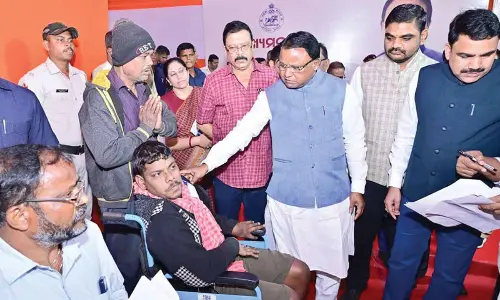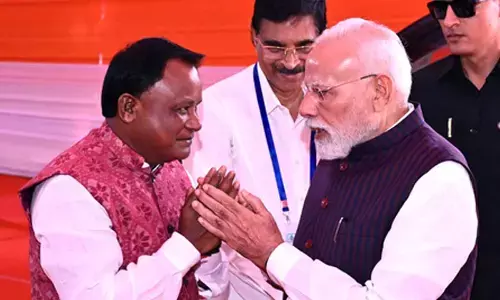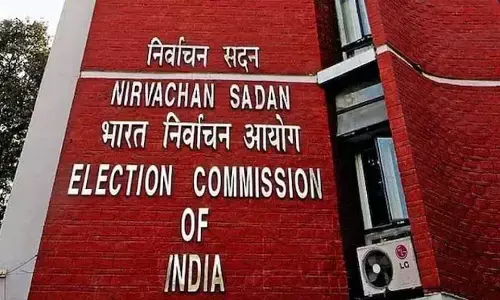Economy will never slip into recession: FM

Finance Minister Nirmala Sitharaman on Wednesday launched a spirited defence of her handling of the economy, comparing macroeconomic indicators with past Congress rules and said the growth may have slowed down but the economy will never slip into recession.
New Delhi: Finance Minister Nirmala Sitharaman on Wednesday launched a spirited defence of her handling of the economy, comparing macroeconomic indicators with past Congress rules and said the growth may have slowed down but the economy will never slip into recession.
Replying to a short-duration discussion on the state of the economy in the Rajya Sabha, she said steps taken by the government post her maiden budget have started bearing fruits and some sectors such as automobiles have shown signs of recovery.
Allaying concerns over revenue position of the government, she said direct tax and GST collections have both seen an increase in the first seven months of the current fiscal when compared to the same period of the last year.
The Congress, the TMC and the Left parties, however, staged a walkout of the House saying she was reading out her budget speech rather than addressing issues facing the economy. "Every step being taken is in the interest of the country. Looking at the economy in discerning view, you see that growth may have come down, but it is not recession yet, it won't be recession ever," she said.
She then went on to compare GDP growth during the Narendra Modi-led BJP government since 2014 and that witnessed in the previous five years under the UPA-II regime, saying inflation was below the targeted range, economic expansion was much better and so were other macroeconomic indicators.
India's growth outlook has weakened sharply this year, with a crunch that started with the non-banking finance institutions spreading to retail businesses, carmakers, home sales and heavy industries. The Indian economy expanded by 5 per cent in April-June, its slowest annual pace since 2013 and the projections are that it may have slowed down further in the second quarter, making six consecutive quarters of slowing growth, a first since 2012.
This despite a recent series of fiscal stimulus, including a reduction in corporate tax rates. Sitharaman blamed the fall in GDP growth in the last two financial years to the lagged effect of twin balance sheet crisis of stress on banks due to non-performing assets (NPAs) or bad loans on the one hand and heavily indebted corporates on the other, resulting from the UPA regime lending.
Rejecting criticism that her maiden budget on July 5 had failed to address concerns of a slowing economy and so had to resort to announcing measures within a month of the passing of the budget by Parliament, she said the Economic Survey and she had recognised the need for recapitalisation of bank and reforms in her budget speech.
Capital infusion of Rs 70,000 crore in banks, flowing from that speech, had led to rise in the ability of banks to lend and over Rs 2.5 lakh crore has been given in loans during the recent outreach programme, she said.
The finance minister did not see a problem of liquidity that forced the slowing of the economy but that of the flow of funds. Reforms such as Insolvency and Bankruptcy Code are yielding results.
On the Goods and Services Tax (GST), she said out of the Rs 6.63 lakh crore net collections targeted in the year through March 31, 2020, Rs 3.26 lakh crore had been collected during April to October.
Month-wise GST collections have grown year-on-year, she said, adding direct tax collections at Rs 6.86 lakh crore in April-October too had seen a growth of 4.8 per cent. "GST is not doing badly. It could do better," she said. She reeled out numbers to defend the economic track record and said the direct tax-to-GDP ratio has risen from 5.5 per cent in 2014-15 to 5.98 per cent in 2018-19.














